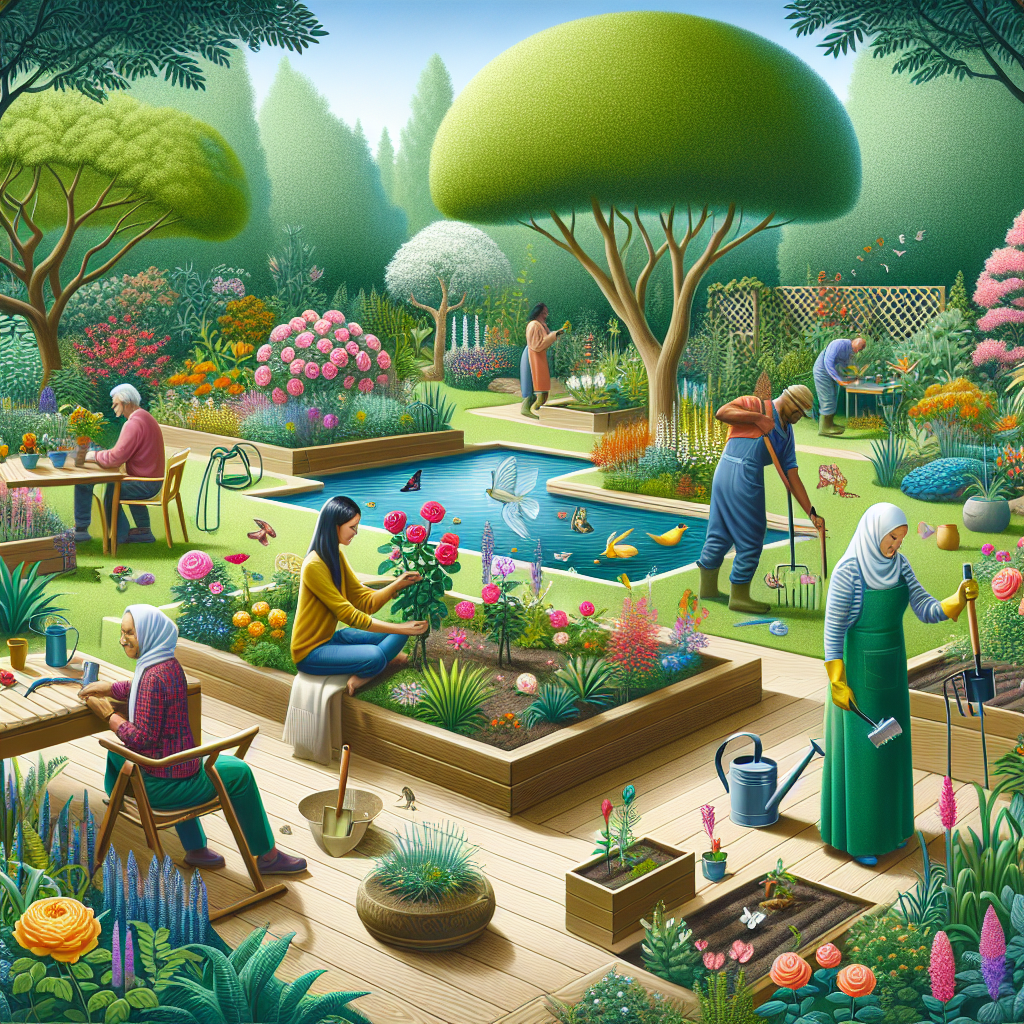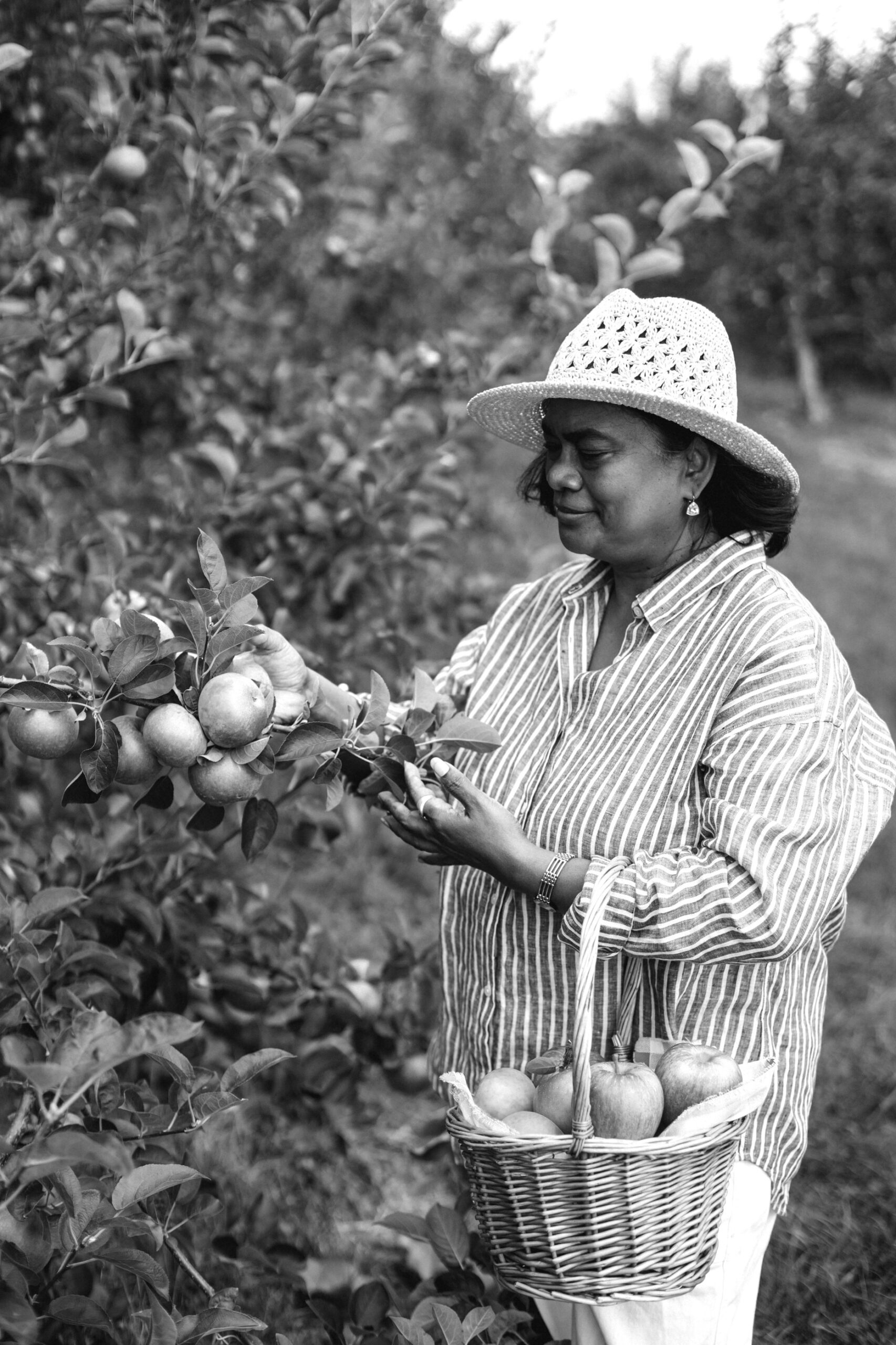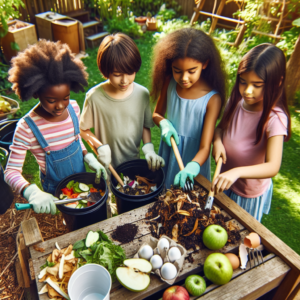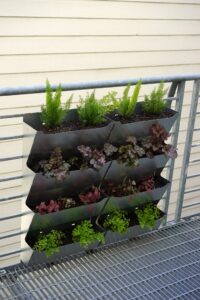Contents
How does gardening improve self-confidence?

Gardening improves self-confidence by providing tangible results for your efforts. When you plant a seed and nurture it into a blooming flower or a ripe vegetable, you witness a direct correlation between your care and the outcome. This process reinforces your ability to influence your environment positively, which in turn, bolsters your belief in your capabilities and your self-worth.
Article-at-a-Glance: Key Takeaways
-
Gardening can be a significant confidence booster, giving you a sense of achievement.
-
Engaging with plants has been scientifically proven to reduce stress and improve mood.
-
Starting your gardening journey can be simple, with just a few basic steps.
-
Setting realistic goals can help you stay motivated and enjoy the fruits of your labor.
-
Therapeutic gardening is a journey of personal growth, teaching patience and mindfulness.
Gardening: A Natural Booster for Self-Esteem
When you plant a seed, you’re planting hope. There’s something incredibly satisfying about tending to your garden and seeing your efforts come to life. It’s a tangible way to track your progress and growth, which in turn, builds your self-esteem. Every new leaf or blossom is a testament to your care and dedication, a small victory that contributes to a larger sense of accomplishment.
Why Gardening Feels So Good: The Science Behind Plant Care
It’s not just anecdotal; science backs up the feel-good factor of gardening. When you dig into the soil, your body releases endorphins, the brain’s natural mood elevators. Plus, the rhythmic nature of gardening tasks like weeding and pruning can be meditative, helping to calm your mind and reduce stress. It’s a holistic approach to self-care that benefits both your body and your brain.
Sowing the Seeds of Confidence

Confidence doesn’t sprout overnight. It grows through experience, patience, and the gentle care of your self-esteem. Gardening is a reflection of this process. Each time you nurture a plant, you’re also nurturing a part of yourself, learning to trust in your abilities and to appreciate the unique growth process of every living thing, including you.
Starting Small: First Steps in Gardening
Embarking on your gardening adventure doesn’t require a green thumb—just a willingness to learn and experiment. Start with a few pots and easy-to-grow plants like herbs or succulents. These little green companions are not only low-maintenance but also provide immediate rewards as they thrive with basic care. It’s these small successes that will pave the way for a more confident you.
Setting Achievable Goals
As you dip your toes into the world of gardening, it’s important to set goals that are within reach. Start with something as simple as keeping a single plant alive for a month, or growing a handful of herbs for your kitchen. These goals should be clear and measurable, giving you a direct path to success. Remember, the aim is to build confidence, not to overwhelm yourself with complex garden projects from the get-go.
Celebrating Your Gardening Wins
Every sprout, every bloom, and every harvest is a cause for celebration. Acknowledge the effort you’ve put into your garden, no matter how small it may seem. Did your basil double in size? Pat yourself on the back! Did you manage to revive that droopy succulent? That’s a win! These victories are not just about the plants; they’re milestones on your journey to greater self-assurance and happiness.
Nurturing Your Well-being Alongside Your Plants

Your garden is a living, breathing reflection of your care and attention. As your plants grow, you’ll find that your well-being is being cultivated too. Gardening encourages you to take regular breaks from the hustle and bustle of life, to slow down and connect with the natural world. It’s an opportunity to nurture something outside yourself, which paradoxically, turns into self-nurturing.
The Therapeutic Effect of Getting Your Hands Dirty
There’s something primal about plunging your hands into the soil. It’s grounding and can be a powerful antidote to the digital overload of modern life. The act of touching earth connects you to the planet and to the cycle of life and growth. This tactile experience can help reduce anxiety and promote feelings of calmness, as your hands work the soil and your mind unwinds.
Creating a Personal Green Space for Meditation
Your garden can become a sanctuary for reflection and meditation. Whether it’s a corner of your living room or a spot on your balcony, dedicate a space where you can be with your plants and your thoughts. This green space doesn’t have to be large; it just needs to be yours. Here, surrounded by the fruits of your labor, you can breathe deeply, find peace, and recharge your mental batteries.
Connecting With Nature’s Rhythms
Life can feel chaotic, but your garden operates on its own serene timetable. Aligning yourself with the rhythms of nature—observing the subtle changes of the seasons, the patterns of the sun and rain—can help you find a sense of stability and continuity. It’s a reminder that growth takes time and that patience is not just a virtue but a pathway to inner tranquility.
Harvesting Happiness: The Emotional Rewards of Gardening

“PNG Stickers, Wallpapers …” from www.rawpixel.com and used with no modifications.
The joy of gardening goes far beyond the aesthetic appeal of a lush balcony or a vibrant flower bed. It’s about the emotional satisfaction that comes from nurturing life and witnessing the cycle of growth. The garden is a canvas where the colors of your emotions are painted with each plant you cultivate. The sense of fulfillment from this creative process is a profound source of happiness.
From Seed to Supper: The Joy of Eating What You Grow
There’s a special kind of pride that comes from eating food you’ve grown yourself. It’s a connection to the earth that’s lost in the hustle of the supermarket. When you bite into a tomato still warm from the sun, or sprinkle fresh basil on your pasta, you’re enjoying the freshest, most flavorful produce possible. It’s not just about taste—it’s about the satisfaction of self-sufficiency and the joy of sharing a meal that you’ve seen through from seed to supper.
Sharing the Bounty: Social Aspects of Gardening
Gardening can be a solitary activity, but it also has a beautiful way of bringing people together. Sharing your harvest with neighbors, friends, or a local food bank can strengthen your sense of community. Gardening clubs and community gardens are great places to connect with fellow enthusiasts, exchange tips, and celebrate the fruits of your labor. The shared experiences in the garden can forge lasting bonds and a sense of belonging.
The Positive Feedback Loop of Gardening Success
Each time you see a new bud or harvest a crop, it reinforces your gardening efforts and encourages you to continue. This positive feedback loop is a powerful motivator. As your garden flourishes, so does your belief in your abilities. It’s a cycle of success that builds momentum, making you eager to take on new challenges and expand your gardening horizons.
FAQs: Cultivating Growth in Gardening and Life

Can gardening really improve my mood?
Absolutely! Gardening has been shown to release endorphins, the body’s natural feel-good chemicals. It also reduces levels of cortisol, a stress hormone, promoting relaxation and reducing anxiety. The act of caring for something living provides purpose and joy, while the beauty and tranquility of a garden can lift your spirits and provide a sense of calm in a busy world.
What if I don’t have a lot of space to garden?
Space constraints need not be a barrier to gardening. Container gardening, vertical gardens, and window boxes are all space-savvy solutions that allow you to grow plants in smaller areas. Herbs, succulents, and many vegetables are well-suited to indoor gardening. The key is to get creative with the space you have, ensuring your plants get the light and love they need to thrive.
How often should I engage in gardening to feel the benefits?
To truly feel the benefits of gardening, consistency is key. Aim to spend time with your plants several times a week, if not daily. Even short, regular intervals of 15 to 30 minutes can have a significant impact on your well-being. The key is to make it a habit, much like any other self-care practice. Over time, you’ll find that these moments in the garden are not just beneficial for your plants, but they’re also invaluable for your mental health.
Are there any plants that are particularly beneficial for well-being?
While all plants can contribute to your well-being, some are especially known for their therapeutic properties. Aloe vera, for example, is not only easy to care for but also has healing properties. Lavender is renowned for its calming scent, which can help reduce stress and improve sleep. Edible plants like tomatoes and strawberries offer the added satisfaction of homegrown produce. Remember, the best plant for you is one that you enjoy and can care for consistently.
So, grab a trowel, choose your seeds, and start your gardening adventure. With every plant you nurture, you’re not just growing a garden; you’re growing your confidence and enhancing your well-being. Let the quiet, consistent act of gardening be your guide to a happier, healthier you.



